Sharon Epperson has been around the proverbial block. In spending her career working in media, she's seen the world of journalism rise and fall—and then rise again in 140-character format. As a woman of color, she's navigated two worlds largely populated by white males: finance and TV. In fact, at CNBC, she's made a 20-year career out of exploring the intersection of the two.
As CNBC's Senior Personal Finance Correspondent, Sharon covers money and savings issues for various shows, meaning she knows the importance of being camera ready at all times. She's always on and always scanning for her next story. And on top of all that? She's also written her own book and serves as an adjunct professor at Columbia.
Sharon is the epitome of the woman who does it all. But while there may be countless items on her to-do list, there are ultimately only three things to know about Sharon:
1. She's busy as hell. 2. She's tough as nails. 3. Above all, she understands the power of adaptability.
Her Starting Point
You got your BA at Harvard in Sociology and Government, then a Masters of International Affairs (with a focus in International Media and Communications, African Studies) from Columbia. Did you always know you wanted to go into media and journalism?
Yes, I was in a high school journalism workshop where I went to a local community college every Saturday for 12 weeks. The workshop was taught by local journalists from the Pittsburgh area, which is where I grew up. It was sponsored by The Pittsburgh Black Media Federation, and learning from reporters whose bylines I had read in the local papers, or listened to on the radio, or saw on television, was really life changing and inspirational for me. In the workshop, we created our own news program, newspaper, and radio show, which showed me that this was something that I could do, and then I also realized it was something that I wanted to do.
What were some of your early jobs? How did they set you on track to becoming who you are today?
I had a lot of internships during college and right after graduation, but the most meaningful were probably my internships at The Wall Street Journal, and The Washington Post. I also lived in Cairo and worked for The American University in Cairo for three months. Those experiences underscored the fact that I wanted to be a journalist, but I also realized that I wanted to know more about the world, which is why I went to graduate school at Columbia. I knew that I wanted to be in New York and stay in the media capital and though I was not sure if I would ever be a foreign correspondent, I knew that if I worked at a major international media organization like Time, I would potentially have the opportunity at some point.
How did you wind up covering finances specifically? Why do you feel it’s such an important topic to cover?
While I was at Time, I had to cover everything from social and local issues to politics and business news. I was initially extremely intimidated by covering business stories, but my Bureau Chief was adamant that I did. I found a story about a philanthropist who had very little money while she was living, but because she saved and invested like Warren Buffett, she ended up giving millions to her local university upon her death. It was a fascinating human interest story, but it also had a business aspect to it. That story caught the eye of some of the recruiters at NBC when I met with them at the National Association of Black Journalists convention, which ultimately helped me land my job here at CNBC.
When I was an intern at The Wall Street Journal, the Bureau Chief always told me that almost any story is a money story and there is a money angle to almost everything. Money impacts so many aspects of our lives. I think it is extremely important to understand money, and helping people figure out how to manage, grow, and protect their money is my personal passion. I also think it is one of the best ways to level the playing field when it comes to economic inequalities.
In those early years, what was a mistake you made along the way that you wish you would have handled differently?
I would say a mistake that I made was getting frustrated that I was not getting promoted quickly enough. I felt at times that my Bureau Chief was particularly hard on me; I thought other people around my age were given more opportunities or that she wasn’t quite as tough on them. But I had a unique situation early on in my career where my Bureau Chief at Time was an African American woman, and I think she understood that then, more than 20 years ago, and today, unfortunately, we have to be three times as good at our jobs. She wanted me to be extremely well prepared and make sure that I had covered all of my bases before I was promoted.
When I got to CNBC, one of my first News Directors told me it would take me five years to find my voice. With my degrees from Columbia and Harvard and having worked at Time for three years, I thought he was insane! But he was absolutely right! It took at least five years for me to find my voice and really have something to say because I knew the material, and I knew how to present it in a way that the average person would understand. Even though at the time I felt like I was one of the last to be promoted among the people I started with, the foundation, mentoring and training I received set me up very well for my future roles.

Her Big Break
How did you ultimately land at CNBC, and what are your responsibilities as Senior Personal Finance Correspondent?
I became a member of the National Association of Black Journalists when I was in college, and I have gone to their national convention every year. I knew when I was at Time that I was interested in television because in addition to working at the New York Bureau at Time, I also worked in what was called the New Media Department where we did a lot of video pieces. I'd worked as an assistant producer on television projects for NY1 and PBS NewsHour, so I had some interest and experience in TV. I also had my one philanthropist story that was in the business section of Time, and because I loved the story about this woman so much, I included it as my first clip to show to recruiters.
I went to the NBC booth at the convention career fair, and the recruiters there were impressed that I was interested in business news and that I had a strong writing background. They also liked that I already had some exposure to television. They were looking for reporters at CNBC and I was hired 20 years ago along with two other magazine reporters to come to CNBC and learn TV. It was absolutely because of the National Association of Black Journalists and the recruiters at NBC that I got my start at CNBC, and that is why those two organizations are so important to me.
My responsibilities as Senior Personal Finance Correspondent include covering all sorts of personal finance topics from retirement, budgeting and student loans to credit cards and estate planning. Pretty much every aspect of personal finance touches my beat. My focus is really on how I can help the viewer learn how to best manage, grow and protect their money. Those are the three things I always keep in mind and that is also my favorite part of the job. I also enjoy getting comments on my stories or on Facebook about how I am helping people. What I like the least about my job is when someone tells me that something was wrong or didn’t work for them, but it gives me the opportunity to look into the story a little further. Viewer comments can be a double-edged sword—sometimes they can be helpful and show me how people receive the different topics and stories that we do, and then if something does not work, that can often turn into another story for me.
We know no day’s typical, but give our readers an idea of what your workday routine might look like for you.
The first thing I do when I arrive at work is check my email (though I have probably already checked it two or three times before I arrive), and then I check social media and see what I have planned for the day before going into make-up. I like to be camera ready because you never know when something will come up.
I have three digital shows at the moment including “Retire Well,” “Your Money Your Future” and “Portfolio Perspective.” These shows are taped every week or every other week, so I am often writing scripts for them or working on a segment for public television’s “Nightly Business Report” that airs in the evening. Every week I also work on a segment for “On the Money,” which is a CNBC syndicated show.
My day really varies depending on how close I am to the show at hand, but I am often spending my day writing scripts, interviewing people for my stories, working with my producer to come up with segment ideas, and then being on the air. I am not sure how surprising this will be to working parents, but I do have two children, ages 14 and 11, so I also spend my day multitasking and helping my kids with whatever they need throughout the day. I try to focus as much as I can on the work at hand during the day, but I think of personal finance as just as much about personal as it is about finance. I think that understanding how people juggle work and home life is important to my job, so I don’t necessarily see it as a distraction, but as something that can actually help me in covering my beat.
You’re also an adjunct professor at Columbia University. What drew you to teaching? Have you learned anything working with students that’s contributed to your own work and career?
My parents were both educators. My mother was a first grade teacher for almost 20 years and my father was a University Dean for almost 30 years, so I grew up in a home where education was paramount. I guess what drew me to teaching was that it was an environment that I knew very well, and I also really enjoy talking to young people and sharing ideas. I have learned a tremendous amount working with students. I have been teaching for quite some time at the School of International Public Affairs, but the Fall of 2015 was my first time teaching at Columbia’s Journalism School and I taught a course on audience engagement where students had to build their own websites and then track the traffic via various social media outlets. It was really an interesting way to teach the students how to tell their story on various platforms and how to share a story so the most viewers are able to see it.
Learning about how my students use media and what most interests them has helped me to do my job as a multimedia journalist even better. My students come from all over the world and have various perspectives about money, so that has also been very instructive for me. A number of them have come to CNBC as interns as well and I have worked on projects with them, so it has been a great relationship.
Given that you’re working for CNBC, teaching, and also writing books—how do you plan for downtime? Do you ever turn off work completely? What do you do to de-stress or unwind?
I remember someone asked me several years ago, “What have you done for yourself this week?” And having been married for 19 years with two kids, a tween and a teenager, and working full time, I couldn’t think of five things I had done for myself that day, week or even that month! So I thought that this has to change and I need to find my time. So I do try to plan for it – it may not be downtime, but it is my time. One of the things I try to find time for during the week is working out – three times a week is my goal and I take a core barre class that is fantastic. It really helps with flexibility and turning things off in my mind. I love my class—and that is one hour when I turn off work completely. The best way to turn work off is to get away from my phone. As a journalist, the news never stops, which means I never stop and I am constantly checking my phone, emails, Facebook, Twitter, etc. That is one thing I try to do to de-stress—get away from my electronics once in a while. And the other thing is my guilty pleasure TV shows. I like to watch anything where I can get lost in the subject!

Her Perspective
Obviously, we’d love to hear your single best piece of financial advice for a woman in her twenties (or hey, thirties).
I would say spend less than you make, and save more than you think you may need. The best way to do that is to sign up for an app like Mint or Level Money that let you put a budget on your phone. It can also be helpful to get alerts from your bank that tell you when you spend more than $50 or $100, whatever threshold that makes sense for you, just so you are mindful of how much you spend at all times. Also, if there are opportunities at your job that allow you to save money like a 401(k), then do that. Put savings somewhere you really will not touch it. I think one of the best ways to start saving is through a Roth IRA, which is a tax advantaged account. You just need to have something where you are starting to get in the habit of saving and that you will not touch even when something like a great sale comes along!
You work in finance and communications, fields that are largely homogenous and male-dominated. Have you ever experienced gender bias or unfair treatment in the workforce? How did you handle those experiences? What’s your best advice for a woman facing her own male-dominated industry?
I think having a female boss really early in my career helped me. I didn’t appreciate it as much at the time, but it did help me a lot. You do have to be three times as good – it shouldn’t be that way, but I think for me, I have the personality where I always want to be doing my very best, so I would want to do that anyway. I think when you are doing your best work for yourself, and you’re also able to show that to your employer, that at least gives you a stronger position in your fight if you are facing any discrimination or bias in your workplace. I think we should always look at our experiences in the work place from a position of power, even when some people may try to make us feel powerless. Our power is that we are here and we have to do the best job possible—and we will!
We’ve all heard someone say that journalism is dead. A bit harsh maybe, but how do you see broadcasting and journalism evolving in the coming years?
I think content is always king and what is evolving is the various mediums that are being used for people to get their content. Television will continue to evolve and some people will watch it on their phones or on their laptops, but everyone still wants the content, facts and good reporting. So while I may watch Lester Holt at 6:30pm, or DVR it and watch it later, my 14-year-old son will watch some of it and then get the rest of his information on Snapchat. My son pretty much knows the same information that I do about the top stories; he just gets it from a different place. It is very important that we, as journalists, are able to tell the same story in different ways—whether that is fewer words or maybe 140 characters, we just have to be able to tell the story and that is the bottom line.
And finally, what do you wake up looking forward to? What’s next for your career?
In my life overall, family is always first. I wake up thankful that my children are healthy and doing well and I also wake up thankful that I have a job where I look forward to going to work. I enjoy the work I do and the people I work with, and I hope I am helping people to understand a little more about their money and become financially independent and financially secure. So anything that is next in my career will be continuing to do that. I think it’s really important for all Americans to be financially secure, but particularly for women and for people of color.
You May Also Like
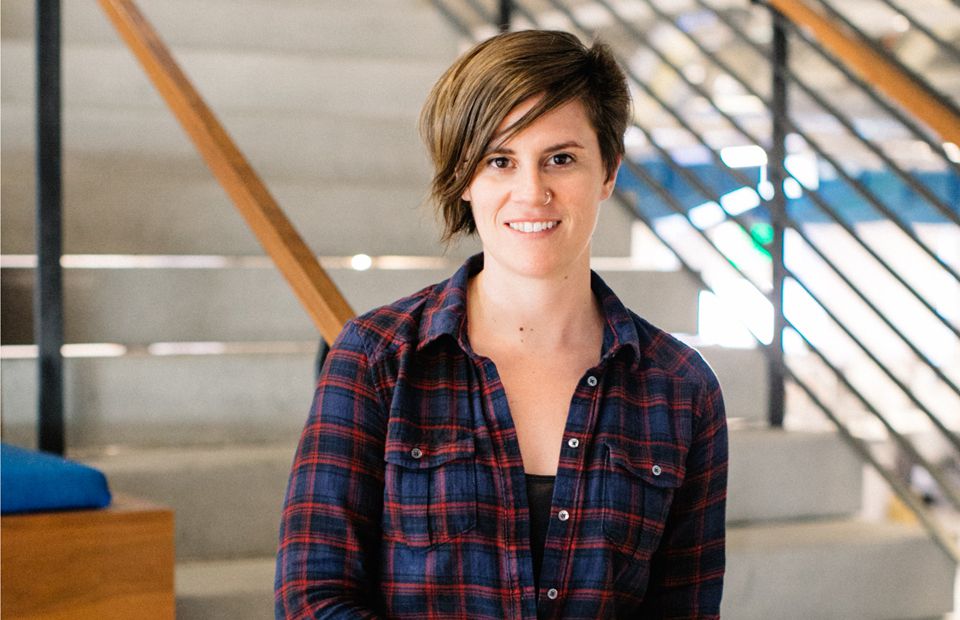
Media
How to Use Positive Reinforcement at Work—and Other Advice from a Pandora PM
"My advice to anyone who wants to get into product management is: check your ego at the door."
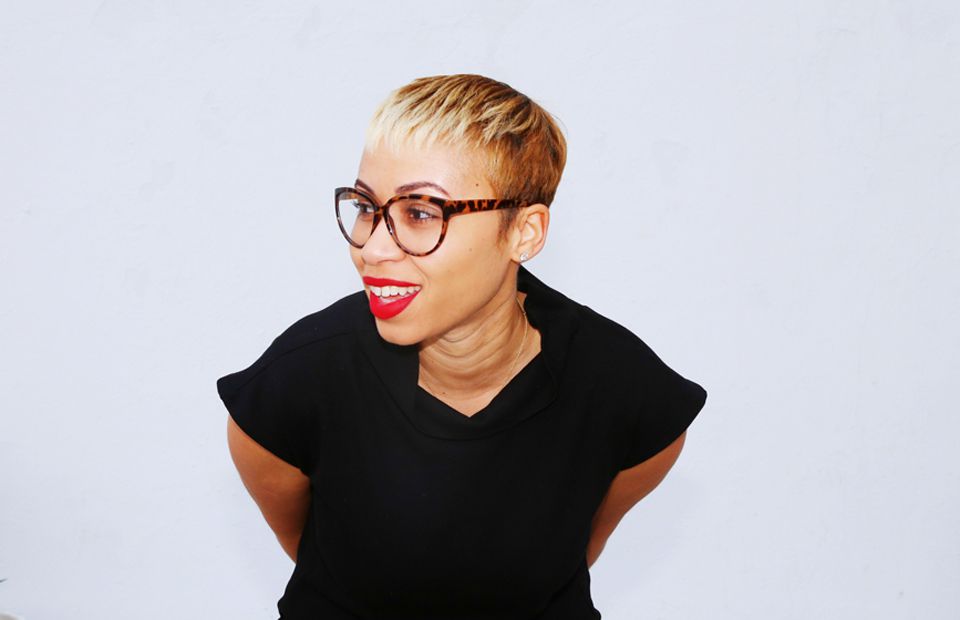
Media, Communications + Public Relations
How to Take Risks, Make a Switch, and Find a Career You Love—From a Woman Who's Done It 4 Times
Making your wildest dreams come true starts with understanding yourself—and Ahyiana Angel can help.
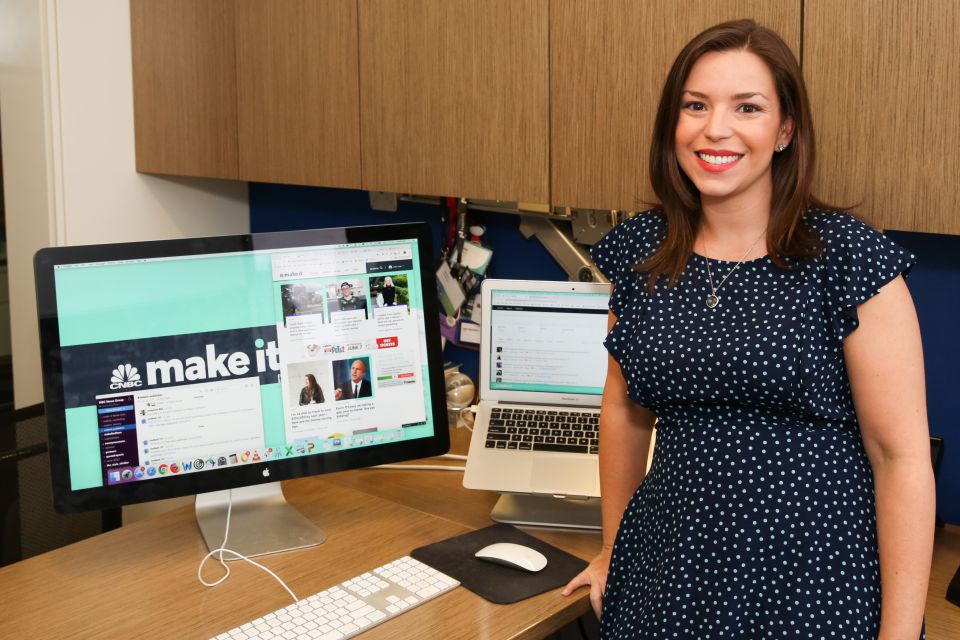
Communications + Public Relations
Creating Content That Empowers Audiences with CNBC's Digital VP and Managing Editor
This week, we interviewed Jenna Goudreau, the VP and managing editor of CNBC Digital. Let's learn how she keeps her powerhouse content creation machine going.
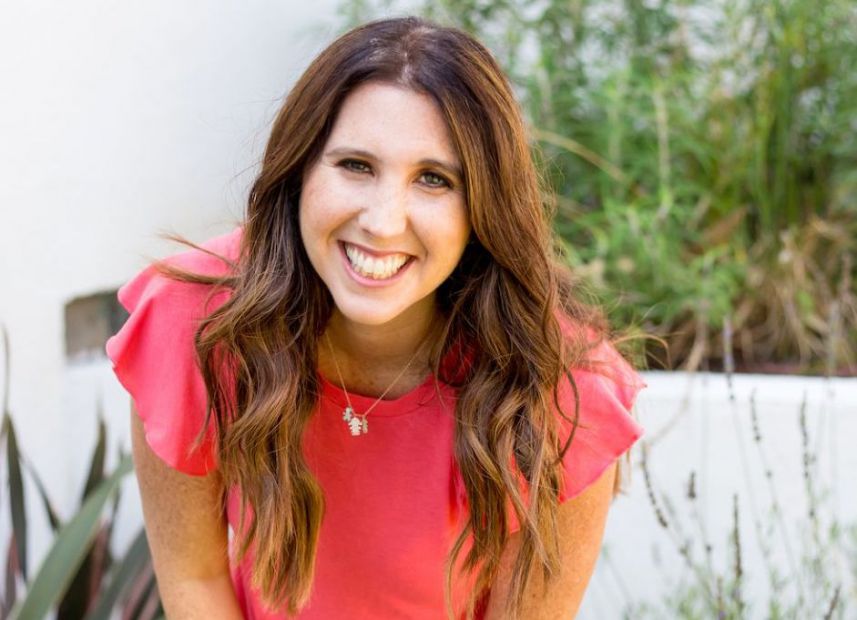
Entertainment
Working Creatively From Home with Cathy Heller
Cathy Heller is a singer, songwriter, entrepreneur, mother—and now, an author. Determined to lift others up to the "happiest versions of themselves," this queen of the hyphenated job title, leads by example. She shared how to build a fulfilling career in a creative field—all while working from home.
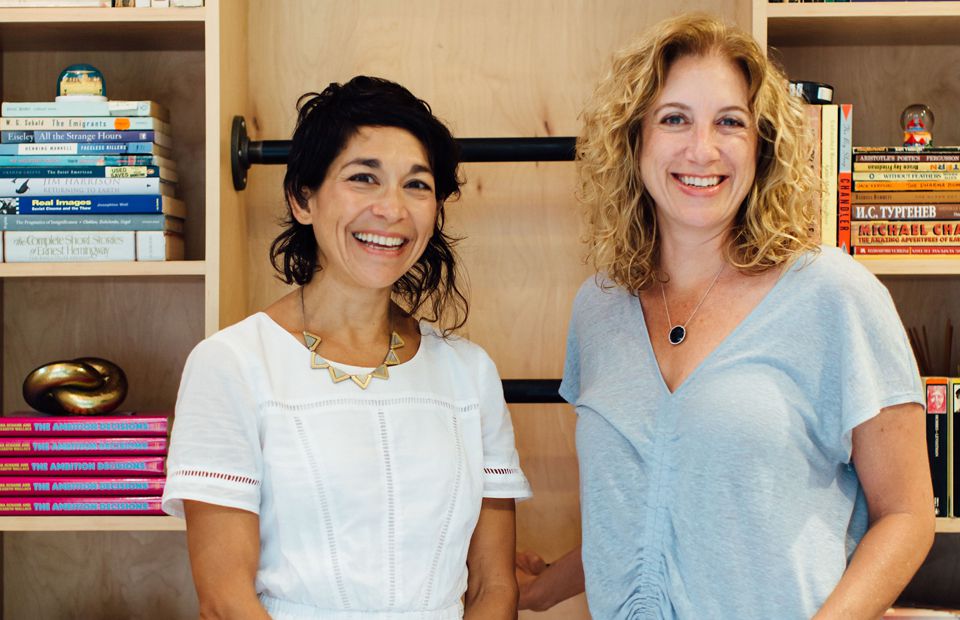
Media
Women, Work, and What It's Like to Write With Your Best Friend—From the Authors of The Ambition Decisions
"We should all give ourselves permission to challenge the things we think can’t be challenged."
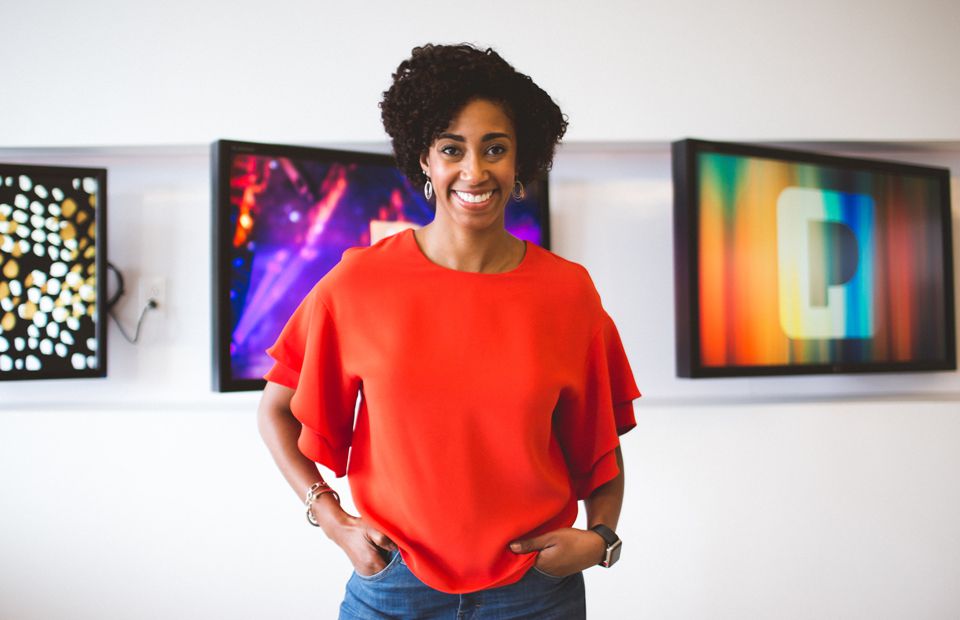
Media
A Director at Pandora on Staying Present, Celebrating Others, and Learning From Failure
"Share your wins, but most importantly, share what your growth areas are, share when you fail, share how you bounced back."
Get the Best Career Advice Delivered To Your Inbox
Join our newsletter to stay in the loop.
